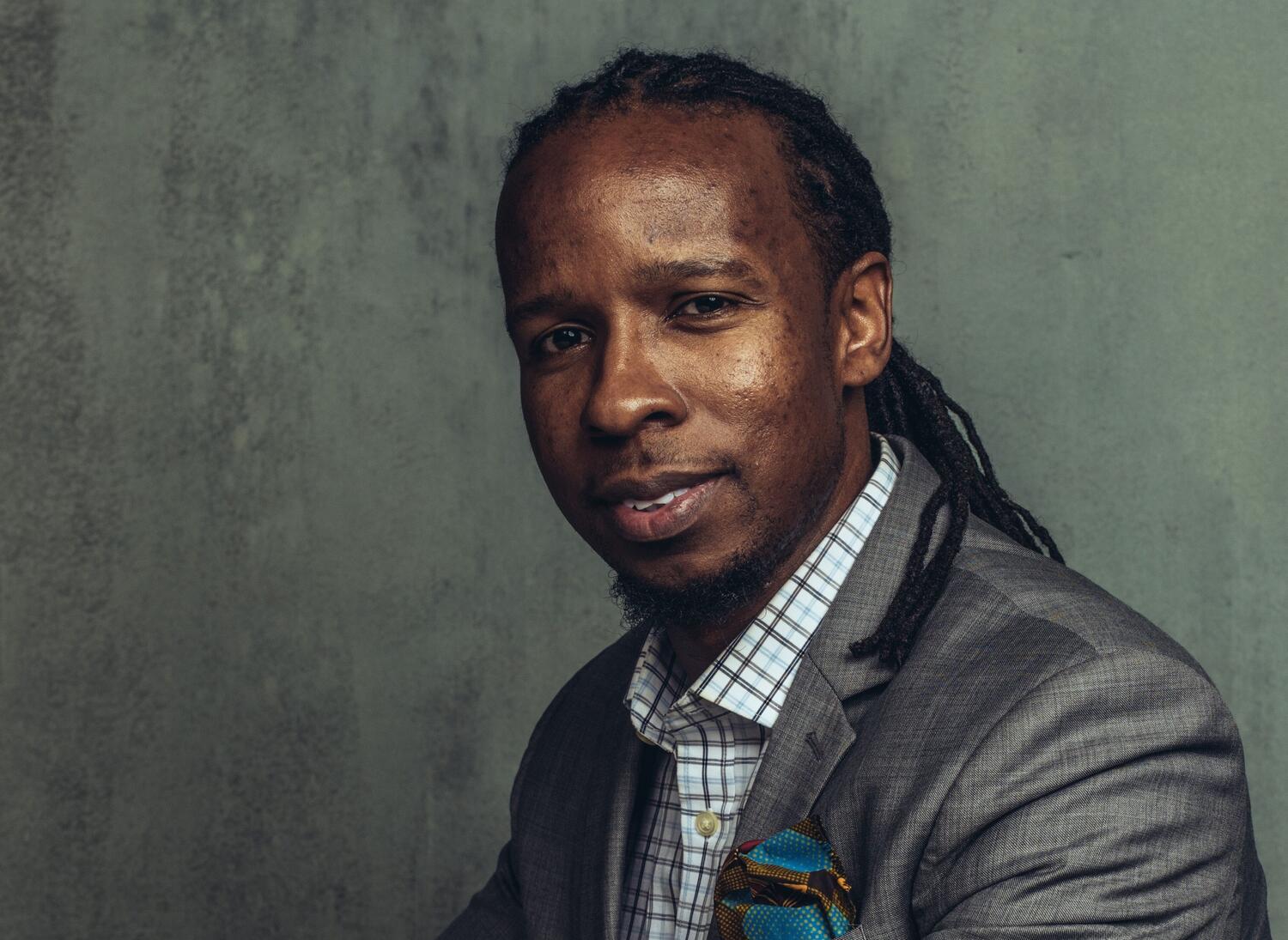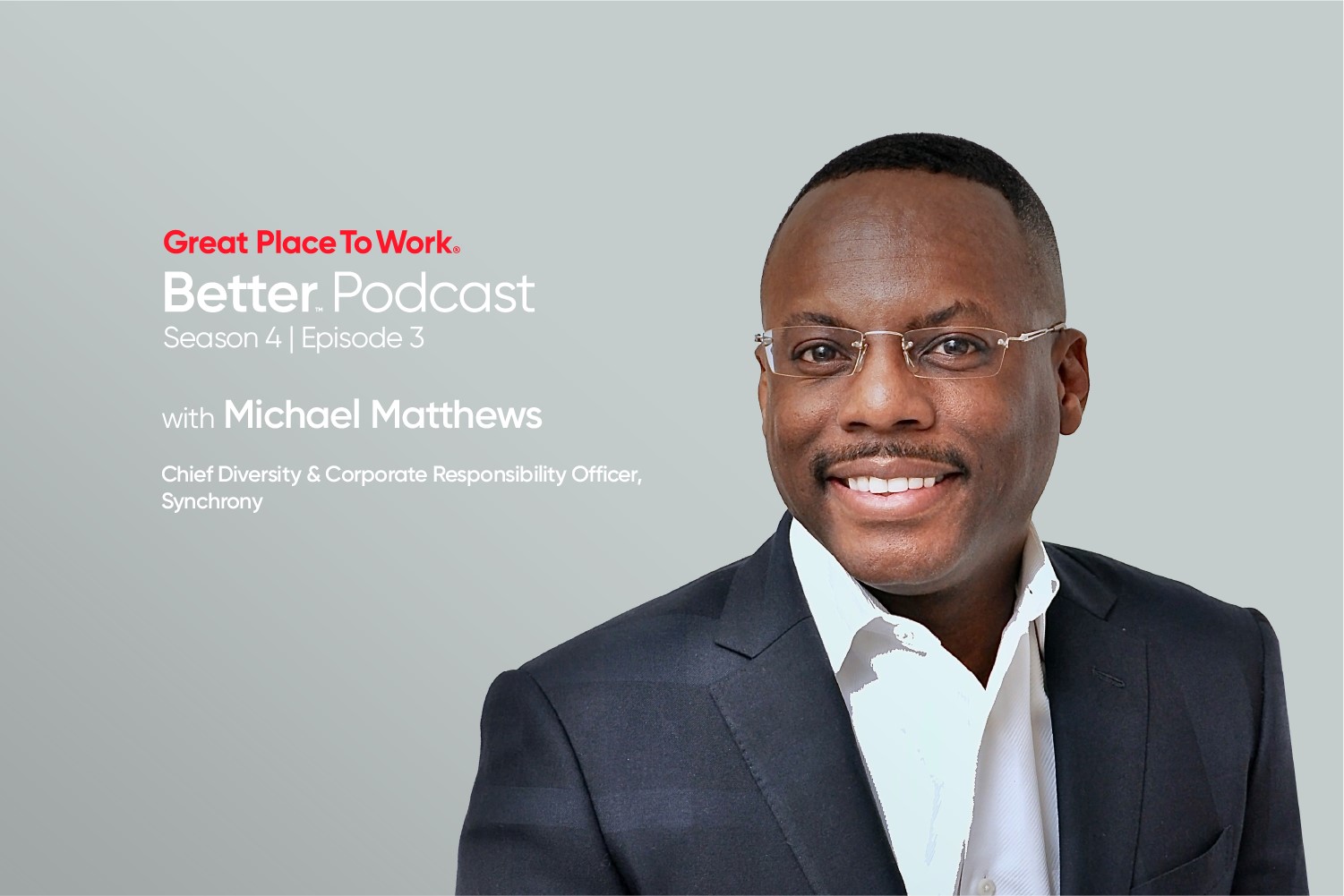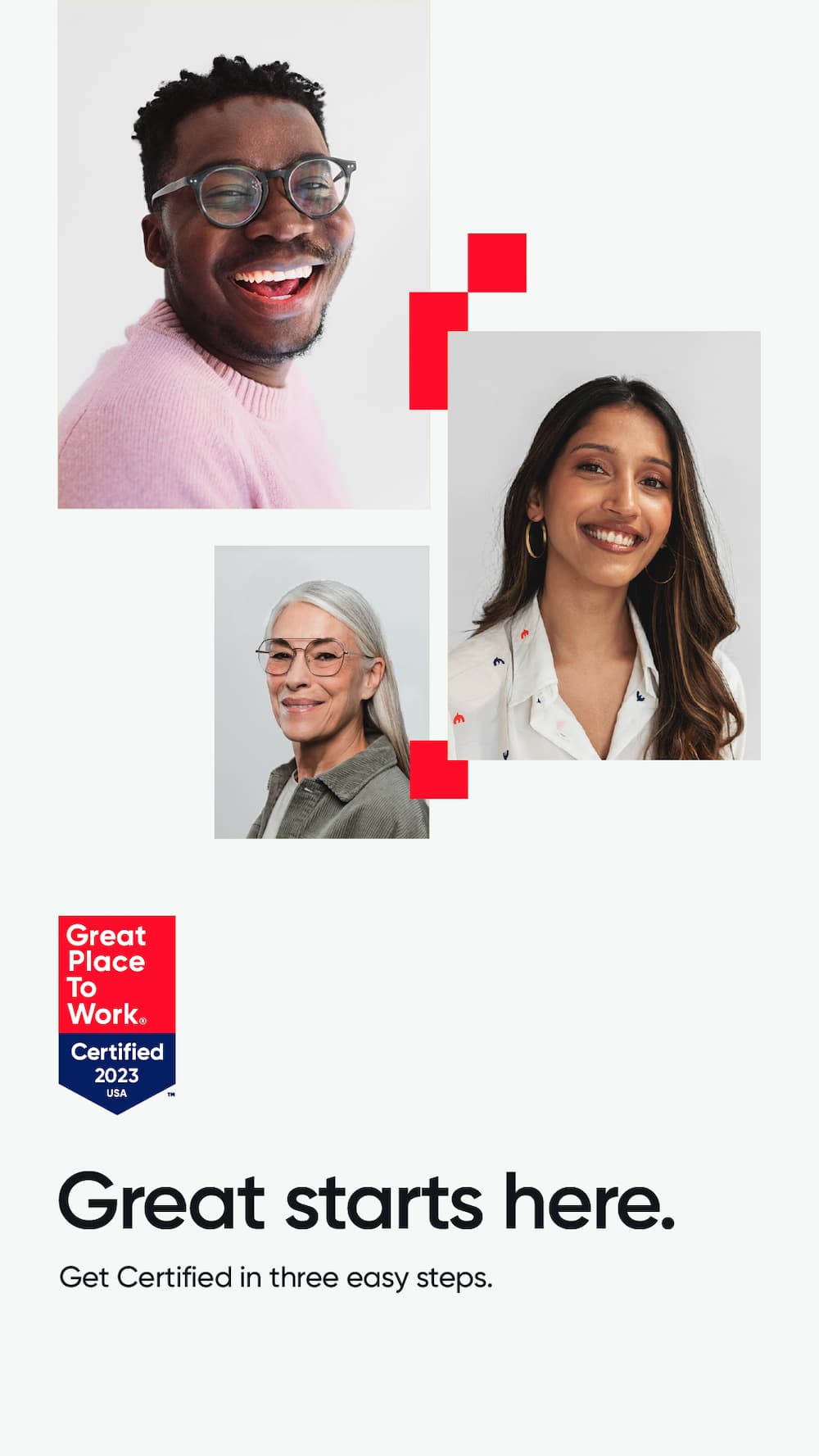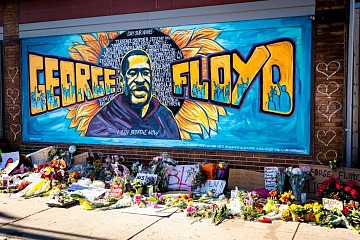Black employees, DEIB, Employee Experience
By Chandni Kazi & Nancy Ceseña.
TIME magazine just named him to the 100 List of Most Influential People in the world. We’re talking about Ibram X. Kendi. Ibram is an American author and historian who teaches at American University and one of the nation’s leading scholars of racism.
Ibram is also the director of the Center for Antiracist Research at Boston University, and author of the books “How to Be an Antiracist” and “Antiracist Baby.”
Ibram joined us recently for an exclusive talk on how companies can create fair and equal workplaces. Ibram equates fighting racism with fighting a cancer. He explains how we can build an anti-racist world by anchoring in shared definitions. Here are our favorite take-aways from the talk.
On definitions
Ibram explains how we’re still arguing about what constitutes a racist act. We can’t push the conversation forward until we have common agreed-upon language.
On why “doing nothing” is racist
- Some people are afraid of saying something racist, so they stay quiet and allow themselves to imagine they are not being racist
- But to do nothing and say nothing in the face of racial injustice is racist
- What slaveholders wanted was for people to do nothing – if people said and did nothing, the injustice and cruelty could continue
- If you say or do something racist, and another person calls it out, the key is your response:
- Anti-racist: accept or acknowledge the racist act and learn from it
- Racist: deny that it was racist
Denial is the heartbeat of racism, beating across ideologies, races, and nations
- The attempt to turn the word racist – a usefully descriptive term – into an almost unusable slur is designed to freeze us into inaction
- One way to fight racism is to identify it, describe it, and then dismantle the actions/policies
Change the perspective: Think about anti-racism in medical terms
What if you told a doctor that they couldn’t tell their patients if they had cancer, because it would hurt the patient to know they had cancer? That would be ridiculous! The patient will be killed by the cancer even if you don’t tell them about it. Doctors diagnose conditions so that patients can seek treatment.
- The term racist isn’t considered descriptive like the term diagnosis is – but it should be. People internalize racist and see it as what and who they are rather than seeing it as a description of a condition they can treat
- Racism is like metastatic cancer that has spread to every part of the body – tumors of racial inequity and injustice
- We need to diagnose our country with a late-stage cancer, and be willing to fight for our country against all odds
- The way we fight this cancer is the same way we fight a cancer in the body – through local and systemic treatments that floods the body with chemotherapy of anti-racism to reduce or eliminate recurrence
- And even after the cancer is removed, we need to scan the body regularly to make sure it isn’t coming back (and fight it again if it does)
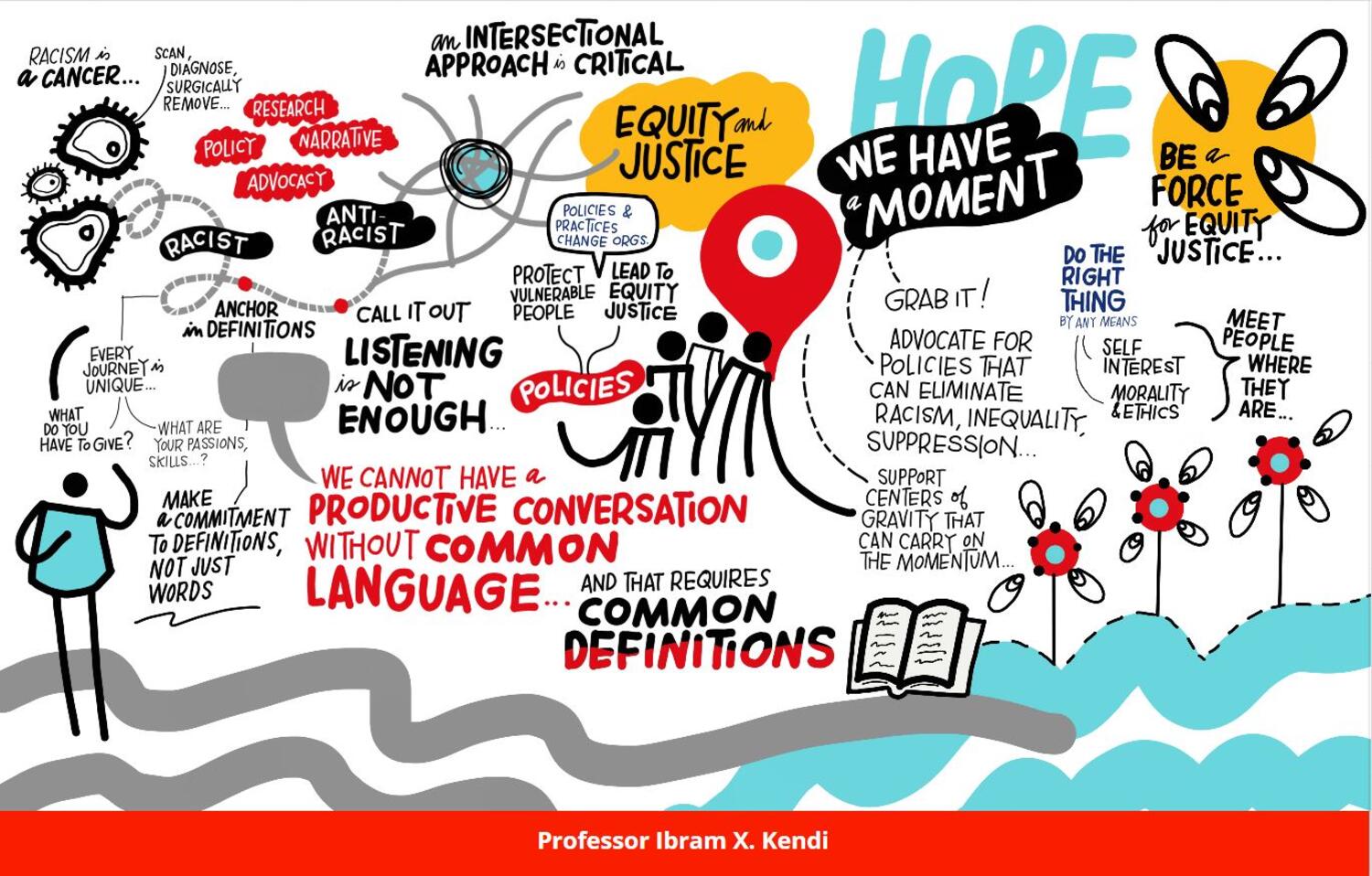
On intersectionality
The Oxford Dictionary defines intersectionality as the interconnected nature of social categorizations such as race, class, and gender, which create overlapping and interdependent systems of discrimination or disadvantage.
- Ibram explained that intersections are critical and that other entities must also be anti-racist – it’s important to have a gender lens, a racial lens, and an understanding of the different complexities people carry that are impacted by various racist policies
- Each social movement needs to be antiracist – if you’re fighting for LGBT+ rights, but in your mind you picture a white gay man, you’re not fighting for everyone’s LGBT+ rights
- Without intersectionality, are you recognizing and uplifting an identity or are you denigrating different groups?
On younger generations
- We have a moment that could slip by: We need to grab it and advocate for policies to eliminate racism and racial inequality
- We need to not reduce racial inequity, but eliminate it
- Yes, many demonstrators are young and white – but the majority of young white voters supported the current president in 2016
- And remember, the Kenosha shooter was a 17-year-old White male
On belonging
- Some folks just want to be themselves, and don’t want to be constantly reminded of the color of their skin
- When Black people are in Black spaces, they feel human
- When a Black person is in a majority White space, they can feel being racialized and objectified
- Employee Resource Groups (ERGs) can help minimize this and enable that human feeling within a company
On global scale
At the talk, we asked Ibram, “How do companies with an international presence talk about racism considering their different global challenges?” Ibram told us how race is a global construct and operates differently in different countries. But racism is pretty similar:
- It leads to darker groups having less, and Blackness/Whiteness is still present.
- No matter where you live, people with darker skin tones should not have less, but there are policies in place that create this inequity everywhere. Whether in Brazil, the U.S. or the Philippines, we should be creating equity for all.
Other important points from Ibram
- We must desegregate the C-suite
- Listening sessions are not enough, we need to focus on policy – listening is good for understanding the depth of the problems, but policy reform leads to solutions
- “All Lives Matter” is deeply inhumane and deeply unempathetic
- Community organizers meet people where they are, workplaces need the same approach to racial equity and anti-racist policy advocacy – this is an ongoing crisis and so many people are suffering that we need results now
About Ibram X. Kendi
Ibram X. Kendi is one of America’s foremost historians and leading antiracist voices. He is a National Book Award-winning and #1 New York Times bestselling author. Kendi is the Andrew W. Mellon Professor in the Humanities and the Founding Director of the Boston University Center for Antiracist Research.
Ibram is a contributor writer at The Atlantic and a CBS News correspondent. He is also the 2020-2021 Frances B. Cashin Fellow at the Radcliffe Institute for the Advanced Study at Harvard University.
Build a better workplace For All™
In November we will host free sessions on how to activate your ERGs, hold tough conversations about racism and much more. In the meantime, register for our CEO Conversations on dealing with the twin viruses of COVID-19 and RACISM-20.




